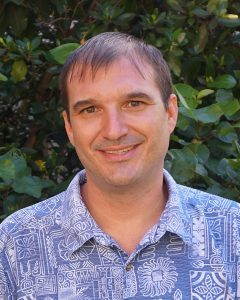New Clinic to Provide Treatment for Early Youth Psychosis
OnTrack Hawai‘i, a speciality care treatment clinic, will expand services on O‘ahu this month to provide improved specialty care services for local youth who have experienced their first episode of psychosis.
An estimated 100,000 youth and young adults in the U.S. experience an initial episode of psychosis every year with symptoms including: auditory and visual hallucinations, paranoia, unusual beliefs, disorganized thinking and altered behavior
On TrackHawai‘i includes the University of Hawaiʻi at Mānoa’s psychology and psychiatry departments at the John A. Burns School of Medicine. The program will open a new clinic in the Ala Moana Building this month to offer therapeutic and assessment services for individuals ages 15 to 24 who are within the first two years of experiencing an episode.
OnTrack Hawaiʻi offers the following services to Hawai‘i youth and young adults experiences symptoms of psychosis:
- Individual and group therapy;
- Medication management using a shared decision-making model;
- Assistance and support to find employment or to return to school;
- Assistance and support for affected families;
- Case management.
“OnTrack Hawaiʻi is based on early psychosis intervention and treatment models that have a long, successful history in Australia and Europe and are spreading throughout the United States,” said David Cicero, associate professor of psychology in the College of Social Sciences and clinic director. “These models use a team-based approach and patient-centered shared decision-making to develop a coordinated specialty care plan to treat affected youth and young adults. Our clinic, which is the first of its kind in Hawaiʻi, aims to help clients improve their quality of life by helping clients get back on track at work, school, and relationships with friends and family.”
Cicero said that youth experiencing their first episodes of psychosis are often frightened and struggle to understand what is happening to them.
“Research has shown that these experiences are best treated through early, structured intervention tailored to fit the needs of each client,” he said. “The key is a collaborative environment where individuals and their OnTrack Hawaiʻi team select the best mix of support services and treatment options. This increases the chances that the client will remain in treatment and improve over the long-term course.”
According to the Recovery After an Initial Schizophrenia Episode (RAISE) study funded by the National Institute of Mental Health (NIMH), schizophrenia—which is characterized by psychosis—usually begins between the ages of 16 and 30. It develops in stages and RAISE research has found that care provided at the earliest stage produces better outcomes for longterm recovery and health.
In the U.S., an average of 74 weeks elapse between the time of the first episode of psychosis and engagement in appropriate treatment. Other countries have reduced this delay to a much lower timeframe of two to seven weeks. OnTrack Hawaii aims to close the gap.
















